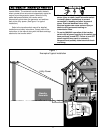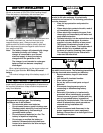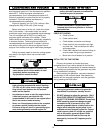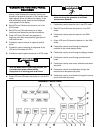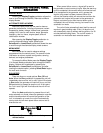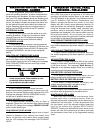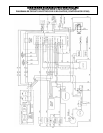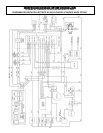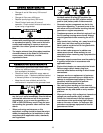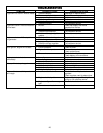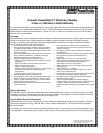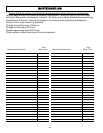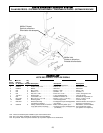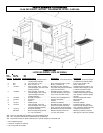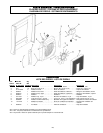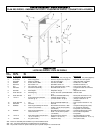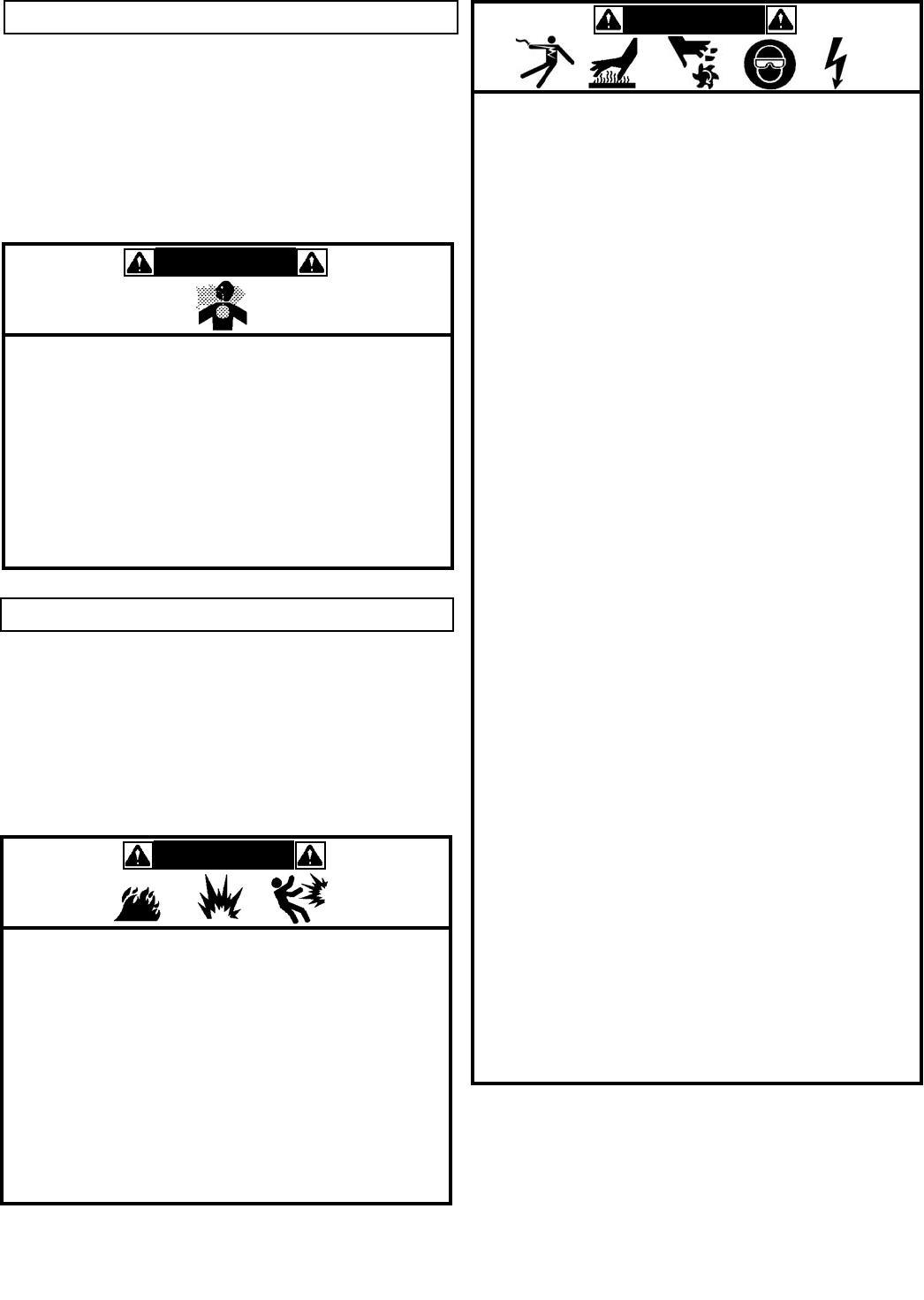
• Check oil every 8 hours of operation.
• Change oil and oil filter every 100 hours of
operation.
• Change air filter every 400 hours.
• Replace spark plugs every 500 hours .
• Check Coolant level every 8 hours of
operation. Check coolant mixture at least twice
a year using a hygrometer.
• Check battery terminals at least twice a year.
Follow any additional instructions and warnings
that accompany the battery.
• Check fuel lines for leaks with soapy water at
least twice a year. If leaks are detected contact
a licensed plumber or licensed gas technician.
• Keep the unit clean of debris and dirt. No
maintenance is required on the generator head.
E
E
N
N
G
G
I
I
N
N
E
E
M
M
A
A
I
I
N
N
T
T
E
E
N
N
A
A
N
N
C
C
E
E
WWAARRNNIINNGG
• Before performing any maintenance, make sure
the Mode switch is in the OFF position, the
circuit breaker is in the OFF position and the
positive (red) battery cable is disconnected.
• Generator/engine components are hot to the
touch when operating. To prevent burns to the
skin allow unit to cool before touching internal
generator or engine components.
• Crankcase pressure can blow hot engine oil out
the fill opening causing severe burns. Always
stop the generator before removing the oil fill
cap.
• Keep hands, feet, clothing, etc., away from drive
belts, fans, and other moving or hot parts.
Never remove any drive belt or fan guard while
the unit is operating.
• Hot coolant under pressure in radiator can
cause severe burns. Allow radiator to cool
completely before removing cap. Eye protection
should be used.
• Generator output connections must be made by
a qualified electrician in accordance with
applicable codes.
• Engine block heater can cause electrical shock.
Remove engine block heater plug from
electrical outlet before working on block heater
connections.
• Improper service or replacement of parts can
lead to severe personal injury or death and to
damage to equipment and property. Service
personnel must be qualified to perform
electrical and mechanical service.
• Use caution when working on live electrical
equipment. Remove jewelry, make sure clothing
and shoes are dry and stand on a dry wooden
platform.
• When performing a high voltage test, hazardous
voltage can cause severe injury or death.
Follow the instructions of the test equipment
manufacturer when performing high-voltage
tests on the rotor or stator. An improper test
procedure can damage equipment or lead to
generator set failure.
G
G
E
E
N
N
E
E
R
R
A
A
T
T
O
O
R
R
M
M
A
A
I
I
N
N
T
T
E
E
N
N
A
A
N
N
C
C
E
E
WWAARRNNIINNGG
• Do not smoke around the generator. Wipe up
any fuel or oil spills immediately. Ensure that no
combustible materials are left in the generator
compartment, or on or near the generator, as
FIRE or EXPLOSION may result. Keep the area
surrounding the generator clean and free from
debris.
• When performing maintenance on this
equipment, nothing should be done that might
render the equipment or its installation in non-
compliance with applicable codes, standards,
and regulations.
WWAARRNNIINNGG
• State and federal agencies have determined that
contact with used engine oil can cause cancer
or reproductive toxicity. Take care to limit skin
contact and breathing of vapors as much as
possible. Use rubber gloves and wash exposed
skin.
• The engine exhaust from this product contains
chemicals known to the State of California to
cause cancer, birth defects, or other
reproductive harm.
19



